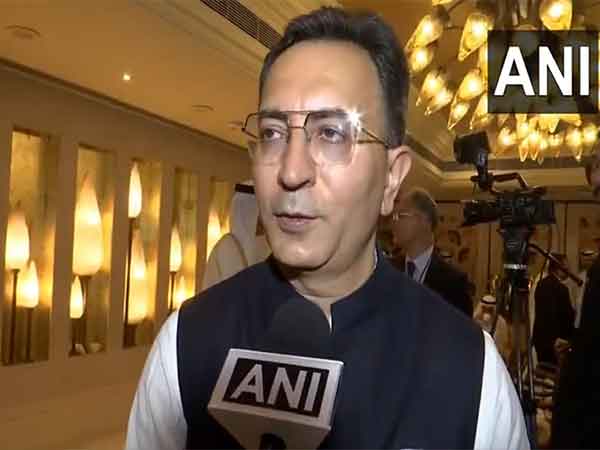
New Delhi: The first-ever 'Made in India' semiconductor chip is expected to roll out of the assembly lines by the end of 2025, Jitin Prasada, Minister of State for Electronics and Information Technology, said.
"The first packaged chip is expected to be out by December 2025," the Minister said in response to a questionnaire from ANI, besides underlining the status of India's nascent yet progressing semiconductor ecosystem.
The government has laid a pathway towards an India that will build chips for the world, aligned across the supply chain, from assembly/testing to design, and manufacturing to exports, the minister said.
The government has approved the Semicon India programme with a total outlay of Rs 76,000 crore for the development of the semiconductor and display manufacturing ecosystem in the country.
It provides fiscal support of 50 per cent of the project cost on pari-passu basis for setting up of Silicon Complementary Metal-Oxide-Semiconductor (CMOS) based Semiconductor Fabs in India, fiscal support of 50 per cent of project cost on pari-passu basis for setting up of Display Fabs; fiscal support of 50 per cent of the capital expenditure on pari-passu basis for setting up of Compound Semiconductors / Silicon Photonics (SiPh) / Sensors (including Micro-Electro-Mechanical Systems) Fab/ Discrete Semiconductor Fab and Semiconductor Assembly, Testing, Marking and Packaging (ATMP) / Outsourced Semiconductor Assembly and Test (OSAT) facilities, the minister outlined.
As on date, the government has approved 10 semiconductor manufacturing projects with a cumulative investment of more than Rs 1.60 lakh crore in 6 states - Gujarat, Assam, Uttar Pradesh, Punjab, Odisha, and Andhra Pradesh.
"The approved projects are under various phases of implementation and are expected to start commercial production in a 1-5 year time frame," he said in his response, without getting into specifics of each project.
These projects, according to the minister, are expected to generate more than 29,000 direct jobs, depending on the maturity of factory automation.
Further, to strengthen semiconductor manufacturing, and creating a semiconductor ecosystem in the country, the government has entered into Memorandum of Understanding (MoU) with the US, European Union, Japan and Singapore.
Semiconductor manufacturing is a very complex and technology-intensive sector which requires specialised skilled manpower. To address this, a new curriculum was introduced by the All India Council for Technical Education (AICTE) for VLSI Design and Technology, Integrated Circuit (IC) manufacturing.
The government is also shaping skilled manpower in the semiconductor design sector and providing EDA tools to design semiconductor chips, the minister said.
A 'Design Linked Incentive (DLI) Scheme' was also approved as part of the Semicon India Programme with an overall outlay of Rs 1000 Crore to nurture the entrepreneurship ecosystem by way of encouraging and supporting the design and deep tech start-ups involved in the semiconductor design ecosystem in the country.
"So far, 72 design companies (including start-ups and MSMEs) have been approved for semiconductor chip design infrastructure support under the DLI Scheme. Out of these, 23 companies have also been approved for P-DLI for developing semiconductor chip/ SoCs for applications in sectors such as automotive, mobility, computing, communications etc.
These companies are developing semiconductor IP cores, chips, SoCs, and systems to serve the Indian market as an import substitute and for export to international markets," the minister noted.
In another query regarding the progress made by the government on the AI mission front, the minister shared a status note, outlining the advances made in this emerging technology.
In March 2024, the Government of India approved the IndiaAI Mission to build a precise and cohesive strategy for the AI ecosystem, catalysing AI innovation through strategic programs and partnerships across the public and private sectors.
The IndiaAI Mission comprises 7 pillars: IndiaAI Compute, IndiaAI Application Development Initiative, AIKosha, The IndiaAI Foundation Models, IndiaAI FutureSkills, IndiaAI Startup Financing, and Safe and Trusted AI.
The Minister further apprised that India is also set to host the upcoming Artificial Intelligence (AI) Impact Summit in February 2026, focusing on the impact of AI on People, Planet, and Progress and is the fourth in a series of global AI summits.
Focus group consultations with civil society, industry, startups, academia, and international organisations have been completed, along with a round of public consultation that concluded on June 30th. A call for proposals from organizations worldwide has been launched to host affiliated pre-summit events from August 11, 2025, to January 31, 2026, the minister further said.